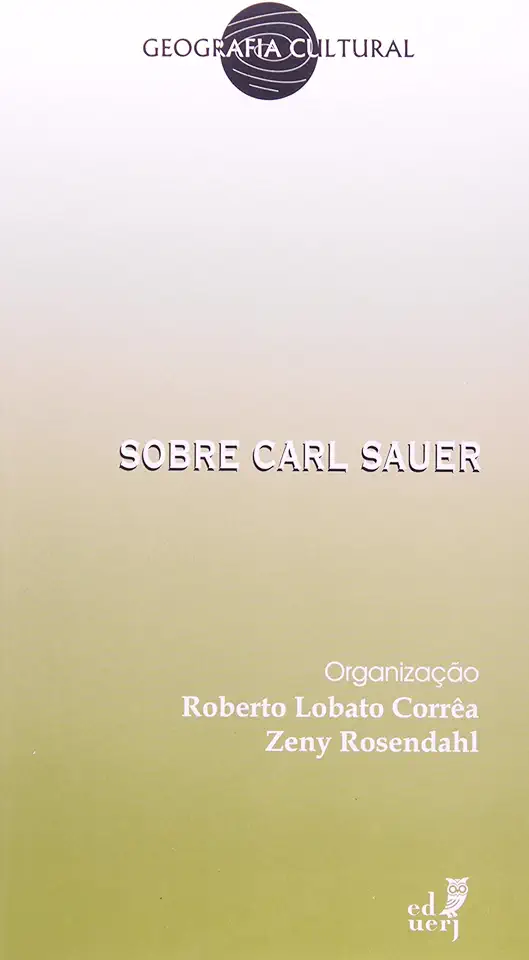
About Carl Sauer - Roberto Correa
About Carl Sauer: A Pioneering Geographer and His Enduring Legacy
Introduction
Carl Sauer, a prominent figure in the field of geography, left an indelible mark on the discipline with his groundbreaking contributions and innovative ideas. This comprehensive book, "About Carl Sauer," delves into the life and work of this remarkable scholar, providing a detailed account of his intellectual journey and the profound impact he had on the study of geography.
Early Life and Education
Carl Sauer was born on December 24, 1889, in Warrenton, Missouri. His early fascination with the natural world and his keen interest in understanding the relationship between humans and their environment laid the foundation for his future career in geography. Sauer pursued his education at the University of Chicago, where he was mentored by renowned geographers such as Rollin Salisbury and Harlan Barrows.
Contributions to Geography
Sauer's contributions to geography are vast and multifaceted, encompassing a wide range of topics and theoretical frameworks. One of his most significant contributions was the concept of cultural landscape, which emphasized the reciprocal relationship between human societies and their physical surroundings. Sauer argued that landscapes are not merely passive backdrops but rather dynamic products of human interaction and adaptation.
Fieldwork and Regional Studies
Sauer's commitment to fieldwork and regional studies set him apart from many of his contemporaries. He conducted extensive fieldwork in various regions, including the Ozark Plateau, the American Southwest, and Mexico, meticulously documenting the intricate connections between human activities and the environment. His regional studies provided valuable insights into the cultural and ecological dynamics of different landscapes.
Theoretical Innovations
Sauer's theoretical contributions to geography were equally profound. He challenged the prevailing environmental determinism of his time, asserting that human agency and cultural factors play a crucial role in shaping the landscape. Sauer's emphasis on human-environment interactions laid the groundwork for the development of humanistic geography and environmental geography.
Influence on Geography and Beyond
Sauer's influence on geography and related disciplines cannot be overstated. His ideas and methodologies have inspired generations of geographers and scholars in fields such as anthropology, history, and environmental studies. Sauer's legacy extends far beyond academia, as his work has influenced policymakers, land managers, and conservationists in their efforts to understand and manage the complex relationships between humans and their environments.
Conclusion
"About Carl Sauer" is a comprehensive and engaging exploration of the life and work of this pioneering geographer. Through meticulous research and insightful analysis, this book provides a compelling narrative of Sauer's intellectual journey and his enduring impact on the field of geography. A must-read for geographers, scholars, and anyone interested in the intricate connections between humans and their environments, this book is a valuable addition to any library.
Enjoyed the summary? Discover all the details and take your reading to the next level — [click here to view the book on Amazon!]